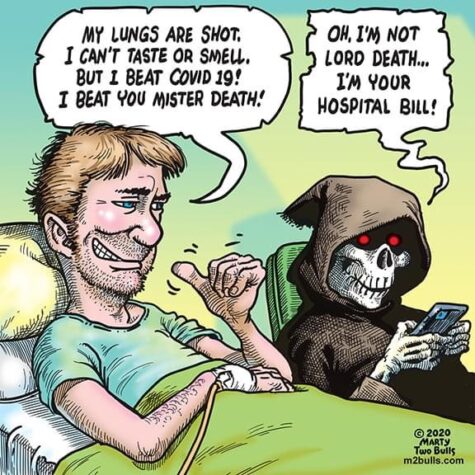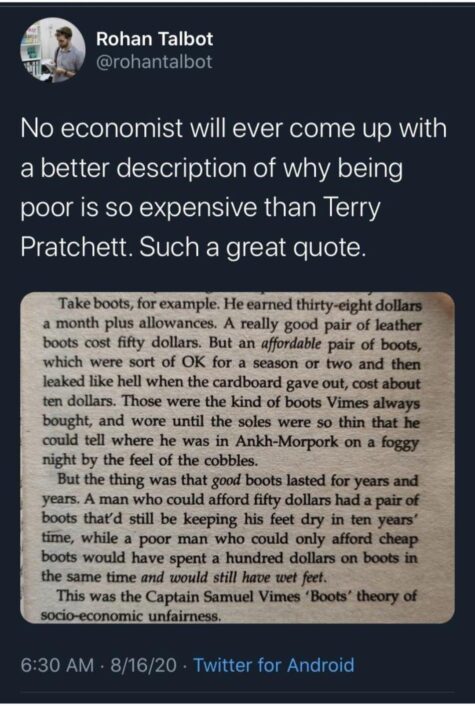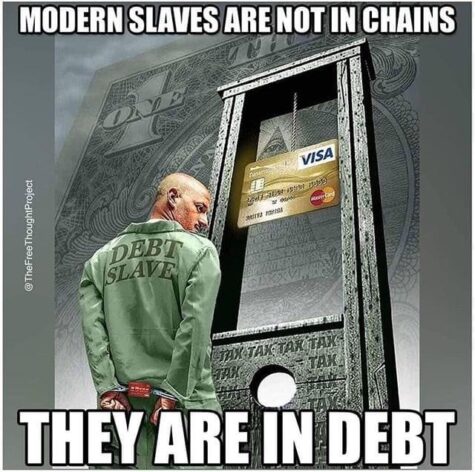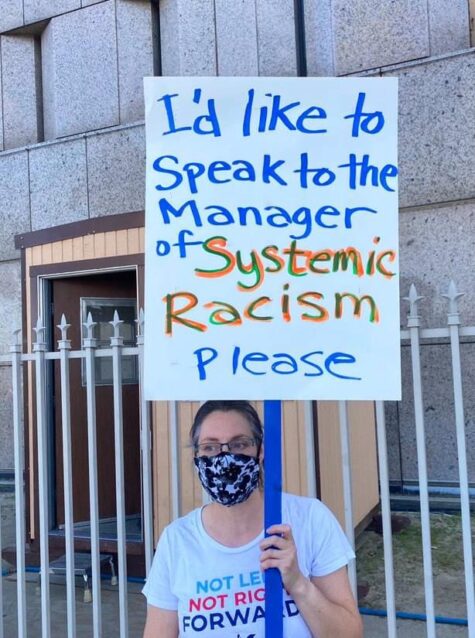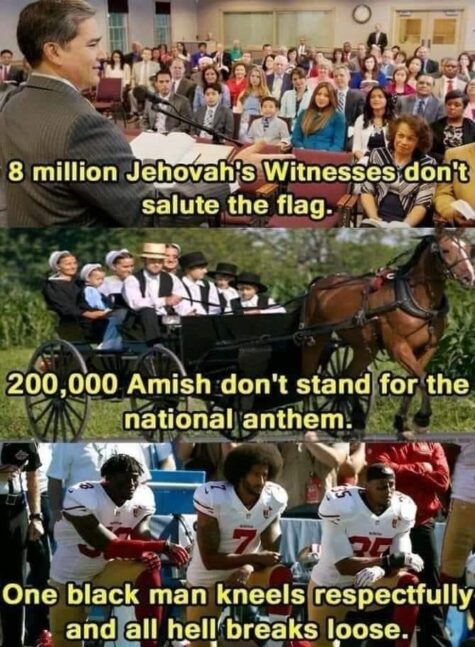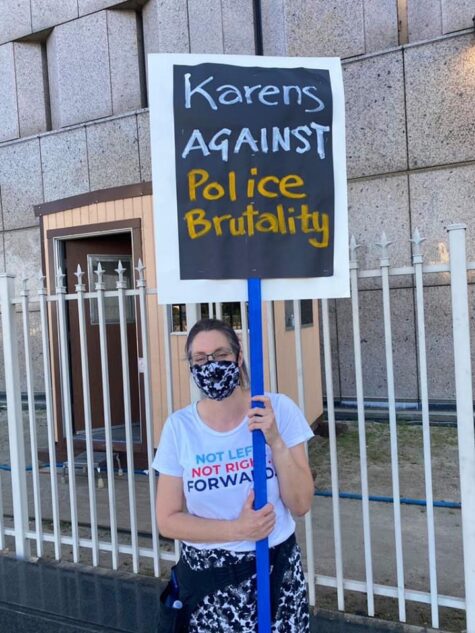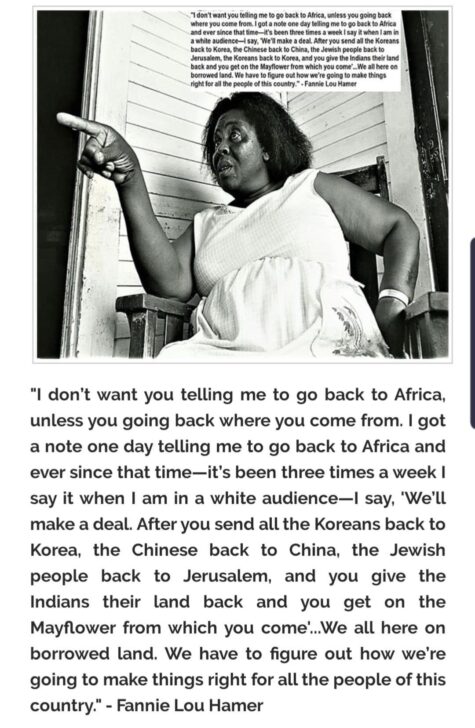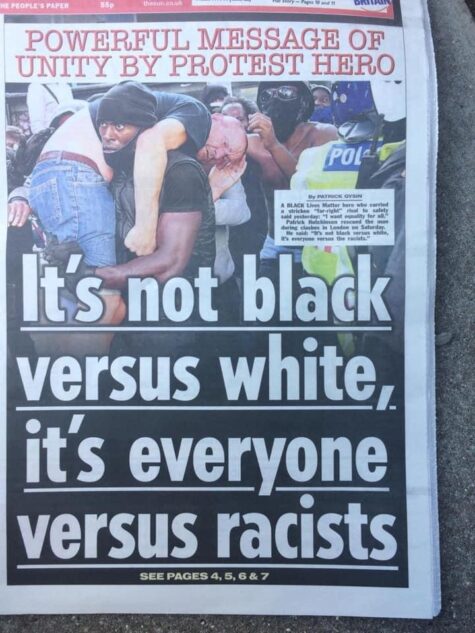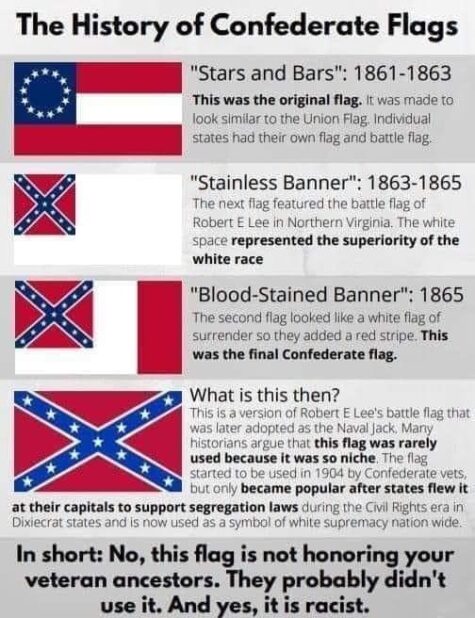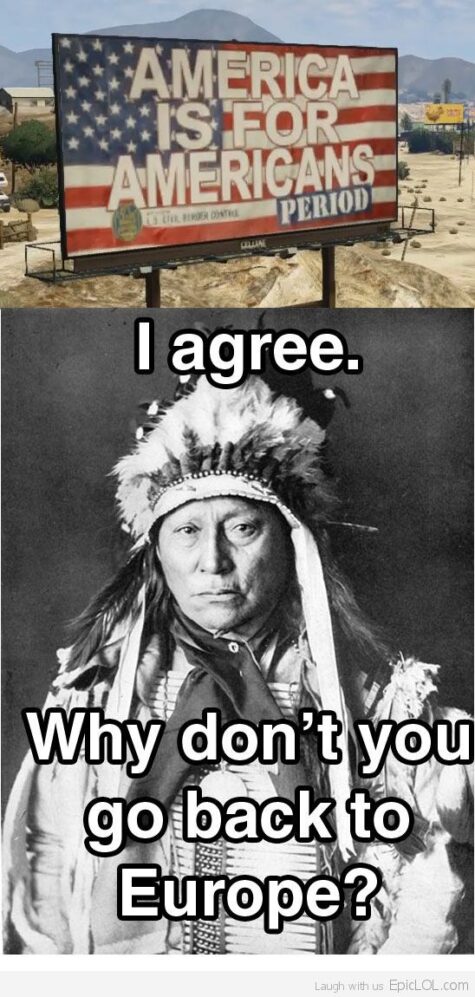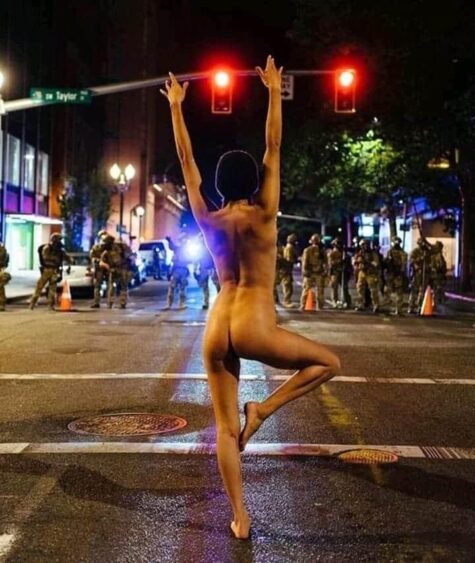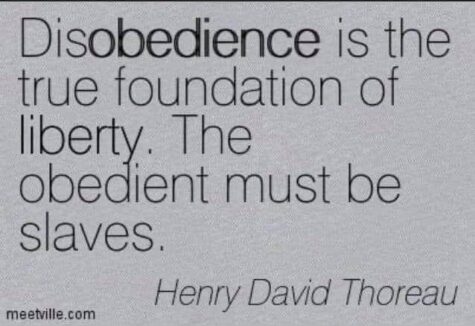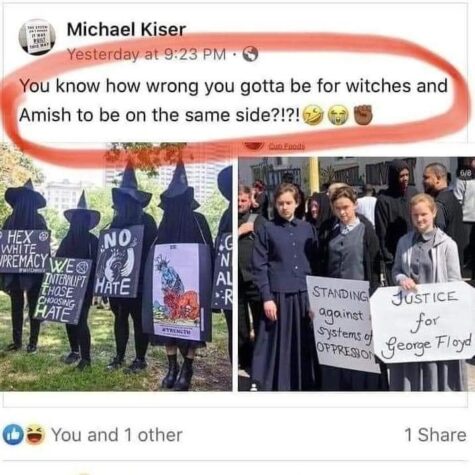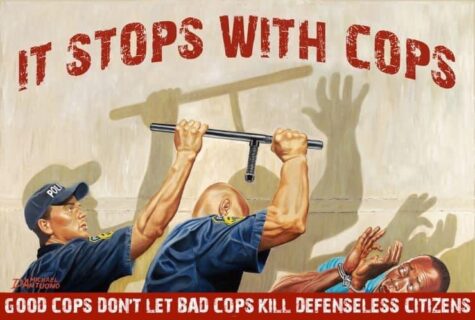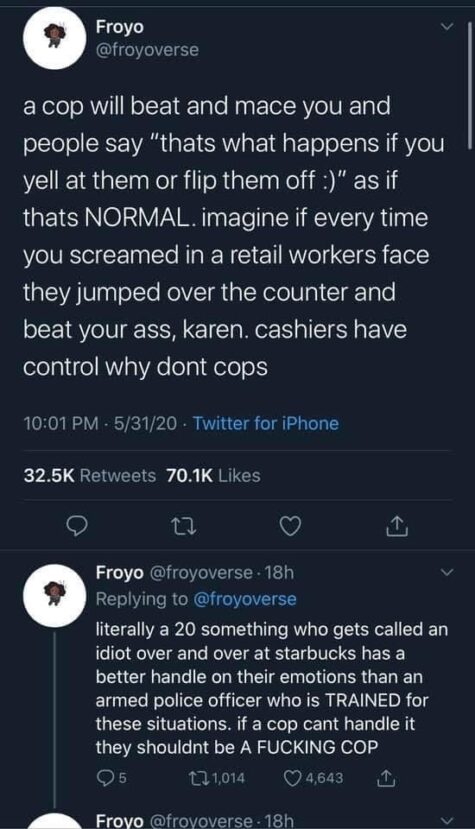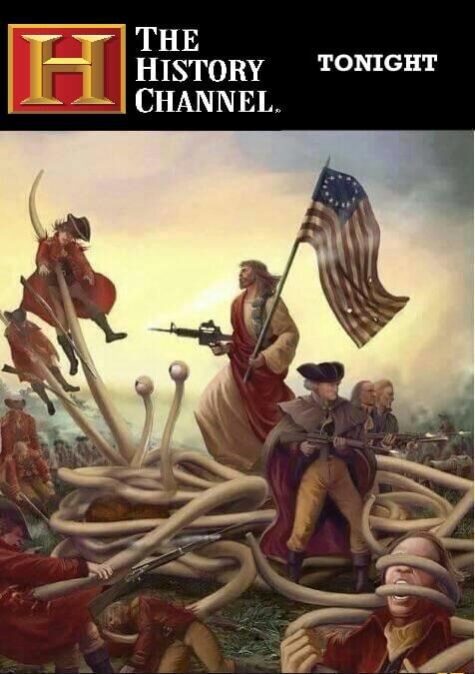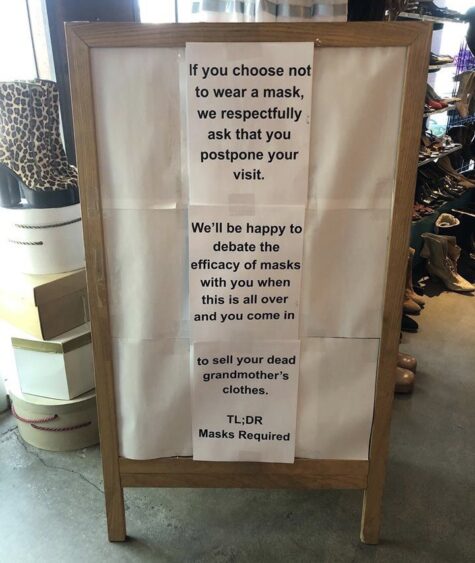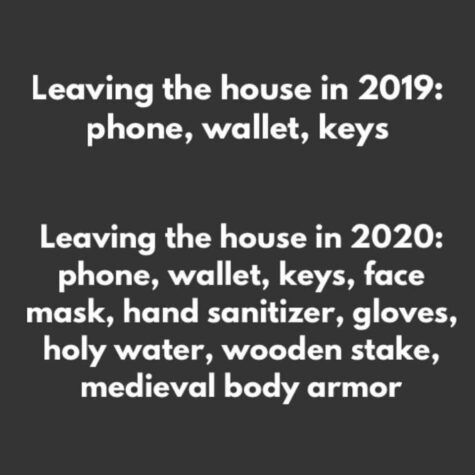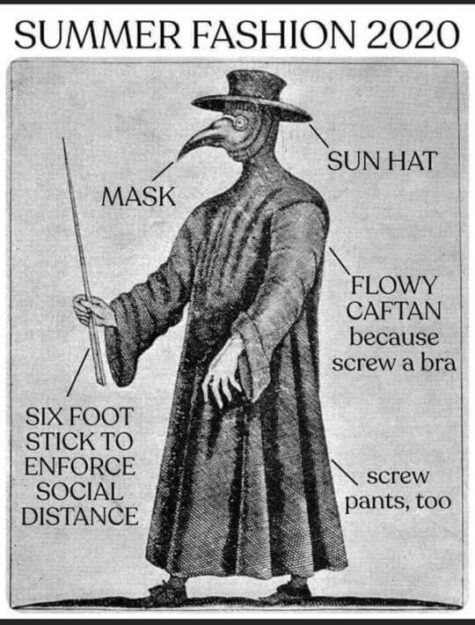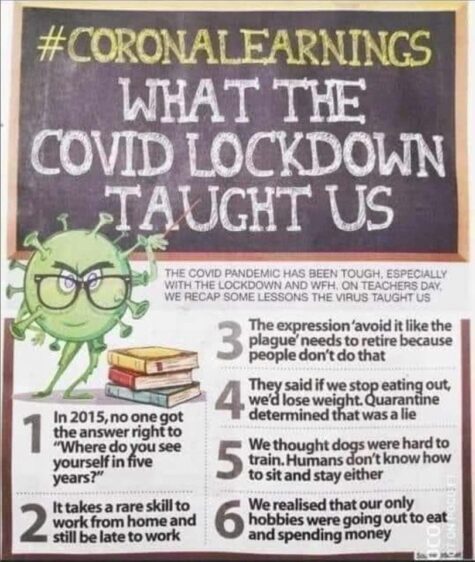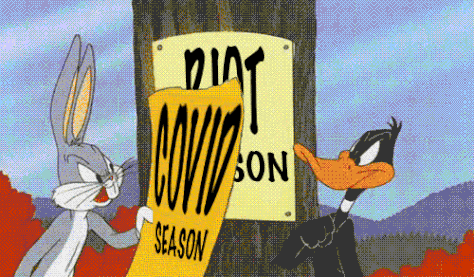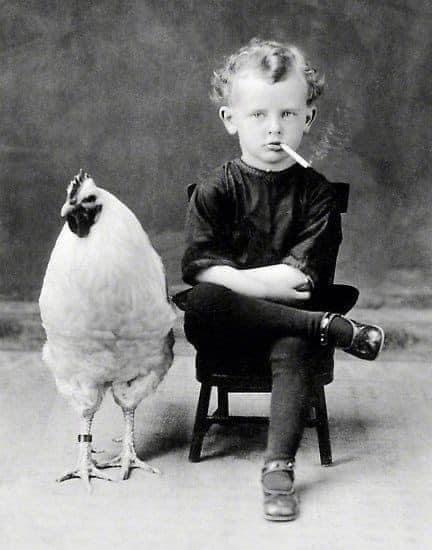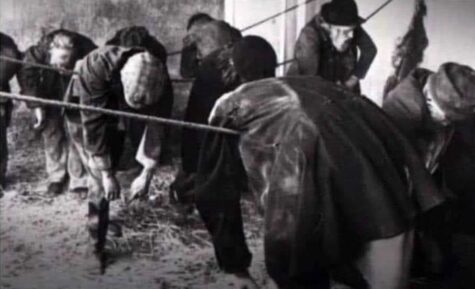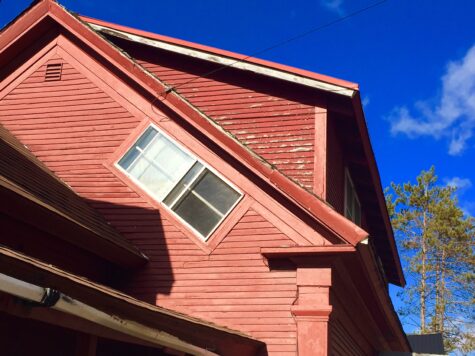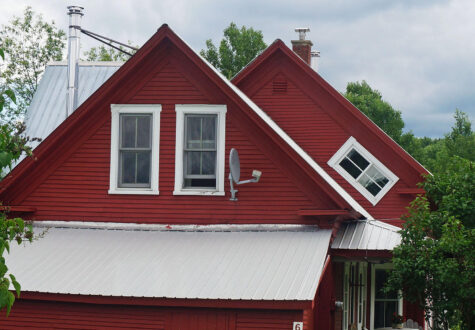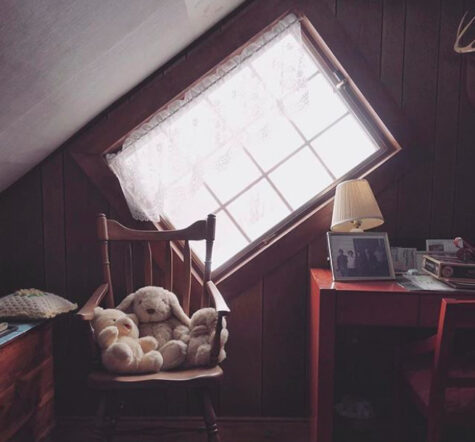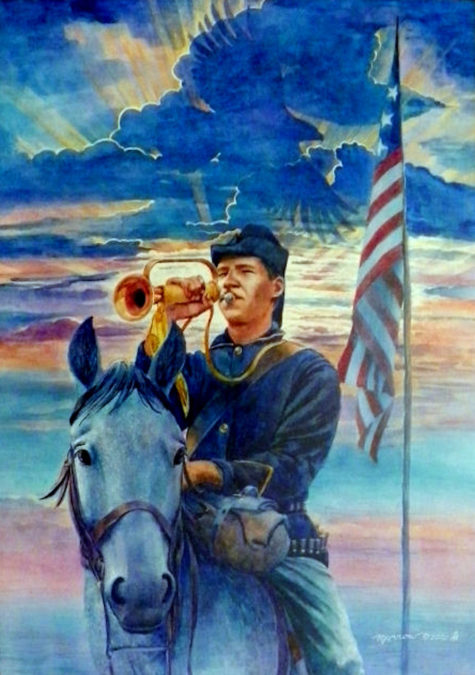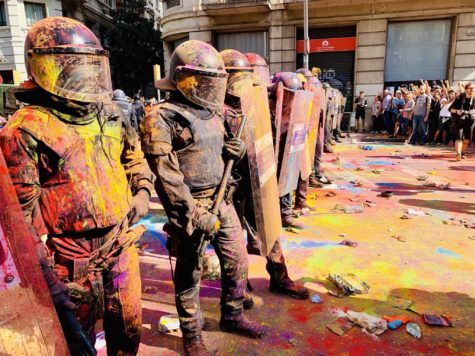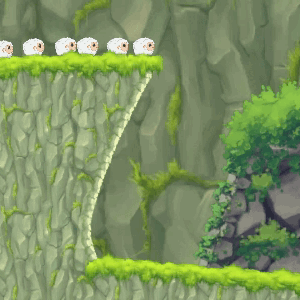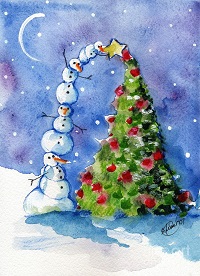Historical Tidbits
I’m purging my files of what’s left of my collected possibly true (or maybe not true) memes and infographics and political commentary that are junking up my computer and my camera roll. I have fact checked nothing.
So why post this? Well, because it says a lot about what’s going on in peoples minds right now, and someday… maybe… someone might be interested. I might even want to revisit some of it for reasons that are currently unknown to me. So, with that in mind, here they are.
I’m purging my files of all the collected possibly true (or maybe not) infographics and memes centered around the #blacklivesmatter, and racism issues currently sitting in my computer and my camera roll. I have fact checked nothing.
So why post this? Well, because it says a lot about what’s going on in people’s minds right now, and someday… maybe… someone might be interested. I might even want to revisit some of it for reasons that are currently unknown to me. So, with that in mind, here they are.
I’m purging my files of all the collected possibly true (or maybe not) memes and infographics regarding the 2020 riots, protests, and blowback. They are rapidly turning into old news and junking up my computer and my camera roll. I have fact checked nothing.
So why post this? Well, because it says a lot about what’s going on in people’s minds right now, and someday… maybe… someone might be interested. I might even want to revisit some of it for reasons that are currently unknown to me. So, with that in mind, here they are.
I’m purging my files of all the collected possibly true (or maybe not true) memes and infographics regarding the Covid-19 pandemic that are junking up my computer and my camera roll. I have fact checked nothing.
So why post this? Well, because it says a lot about what’s going on in peoples minds right now, and someday… maybe… someone might be interested. I might even want to revisit some of it for reasons that are currently unknown to me. So, with that in mind, here they are.
I’m purging my files of all the rest of my collected memes and infographics featuring Donald Trump. They are junking up my computer and my camera roll, and I’m tired of seeing them. I have fact checked nothing.
So why post this? Well, because it says a lot about what’s going on right now, and someday… maybe… someone might be interested. I might even want to revisit some of it for reasons that are currently unknown to me. So, with that in mind, here they are.
- Absolutely true – Surprisingly, for a time, this meant absolutely false. The name Absolutely True was the title of a book, the statements in which, were difficult to accept or blatantly untrue.
- Afternoonified – A society word meaning “smart.” “The goods are not ‘afternoonified’ enough for me.”
- Agreeable rattle – A talkative young man.
- Air-hole – A small (often dismal) Public Park adapted from an old graveyard, with the gravestones removed and replaced to stand, sentry style around the circumference.
- Alexandra limp – An affected manner of walking seen in many women for several years and attributed to the then Princess of Wales who had had some trouble with a knee.
- Arfarfan’arf – A figure of speech used to describe drunken men. “He’s very arf’arf’an’arf,” meaning he has had many “arfs,” or half-pints of booze.
- Argol-bargol – To have a row or a fight.
- Amen corner – A church
- Appy dosser – A satirical description of a homeless creature, so wretched as to not have the few halfpence necessary to pay for a ‘dos’ or bed in a common lodging house.
- Back slang it – Thieves used this term to indicate that they wanted “to go out the back way.”
- Bags o’ mystery – An 1850 term for sausages, “because no man but the maker knows what is in them. … The ‘bag’ refers to the gut which contained the chopped meat.”
- Balloon-juice – Soda water, presumably suggested by its gasey nature.
- Bang up to the elephant – This phrase originated in London in 1882, and means “perfect, complete, unapproachable.”
- Batty-fang = Low London phrase meaning “to thrash thoroughly.”
- Benjo – Nineteenth century sailor slang for “A riotous holiday, a noisy day in the streets.”
- Bit o’ raspberry – An attractive girl, originally a raspberry jam as this was considered the most flavorsome of preserves, so the prettiest of the girls were a bit o’ raspberry.
- Bitch the pot – Among a tea drinking party of men, it refers to who will pour the tea. “It’s your turn to bitch the pot.”
- Bloody carpet rags – A mutilated man. For example, “he’d make bloody carpet rags of him.”
- Bow wow mutton – A naval term referring to meat so bad “it might be dog flesh.”
- Bricky – Brave or fearless. “Adroit after the manner of a brick,” said even of the other sex, ‘What a bricky girl she is.’”
- Bubble around – A verbal attack, generally made via the press. For example, The Golden Butterfly: “I will back a first-class British subject for bubbling around against all humanity.”
- Burst your crust – Break the skin. “You might slip and burst your crust.”
- Butter upon bacon – Extravagance. Too much extravagance. “Are you going to put lace over the feather, isn’t that rather butter upon bacon?”
- Buzzer – Motor vehicle of any kind, due to the noise made as they passed by.
- Cads on castors – Bicyclists.
- Carachtevankterous – Desperately wanting in self-possession. Perhaps an intensification of cantankerous. Extremely grumpy, grouchy, or mean.
- Carriwitchet – A puzzling question, possibly from the name of a woman notorious for asking difficult questions – Carrie Witchet.
- Cat-lap – A London society term for tea and coffee “used scornfully by drinkers of beer and strong waters … in club-life is one of the more ignominious names given to champagne by men who prefer stronger liquors.”
- Chew into dish cloths – Totally annihilate.
- Church-bell – A talkative woman.
- Chuckaboo – A nickname given to a close friend.
- Cigareticide – A word invented to meet the (1883) theory that the cigarette is the most dangerous form of smoking.
- Collie shangles – Arguments; brought into being by Queen Victoria and said to be a Scots word to describe fights among dogs.
- Cop a mouse – To get a black eye. “Cop in this sense is to catch or suffer, while the color of the obligation at its worst suggests the color and size of the innocent animal named.”
- Cut a finger – To cause a disagreeable odor.
- Daddles – A delightful way to refer to your rather boring hands.
- Damfino – This creative cuss is a contraction of “damned if I know.”
- Dance upon nothing – To be hanged, taken from the convulsions of the condemned prior to the long drop method of execution.
- Dash my wig – “Darn it.”
- Dizzy age – A phrase meaning “elderly,” because it “makes the spectator giddy to think of the victim’s years.” The term is usually refers to “a maiden or other woman canvassed by other maiden ladies or others.”
- Do a dutch – To remove one’s furnishings from a property and leave the premises without paying the due rent.
- Doing the bear – “Courting that involves hugging.”
- Don’t sell me a dog – Popular until 1870, this phrase meant “Don’t lie to me!” Apparently, people who sold dogs back in the day were prone to trying to pass off mutts as purebreds.
- Door-knocker – A type of beard “formed by the cheeks and chin being shaved leaving a chain of hair under the chin, and upon each side of mouth forming with moustache something like a door-knocker.”
- Dying duck in a thunderstorm – Lackadaisical, unattractive.
- Eat vinegar with a fork – Have an acid sharpness in conversation; quick-witted.
- Enthuzimuzzy – “Satirical reference to enthusiasm.” Created by Braham the terror, whoever that is.
- Evening wheezes – News, usually false news spread in the evening halfpenny papers in order to sell them.
- Fifteen puzzle – Not the game you might be familiar with, but a term meaning complete and absolute confusion.
- Flag of distress – A young lad’s shirt as seen through the opening of his trousers.
- Fly rink – An 1875 term for a polished bald head.
- Gal-sneaker – An 1870 term for “a man devoted to seduction.”
- Gas-pipes – A term for especially tight pants.
- Gigglemug – An habitually smiling face.
- Got the morbs – Use of this 1880 phrase indicated temporary melancholy.
- Grinning at the daisy roots – Dead, literally grinning up at the roots of the flowers that cover the coffin of the deceased.
- Half-hour gentleman – A man whose apparent good breeding is only superficial.
- Half-rats – Partially intoxicated.
- Incident – An illegitimate child.
- Jammiest bits of jam – “Absolutely perfect young females,” circa 1883.
- Jinks the barber – An informant, suggested because barbers are such gossips.
- Killing the canary – Shirking work. Probably from miner’s safety canaries going uncared for whilst workers remained at home.
- Kruger-spoof – Lying, from 1896.
- Lally-gagging – Flirting, behaving in a coquettish manner towards the opposite sex.
- Lotties and totties – Ladies at large; out on the town.
- Mad as hops – Excitable.
- Mafficking – An excellent word that means getting rowdy in the streets.
- Make a stuffed bird laugh – “Absolutely preposterous.”
- Married to Brown Bess – To serve as a soldier with Brown Bess being a musket.
- Meater – A street term meaning coward.
- Mind the grease – When walking or otherwise getting around, you could ask people to let you pass, please. Or you could ask them to mind the grease, which meant the same thing to Victorians.
- Mouth-pie – An emphatic term for scolding of the feminine variety. Usually a husband lamenting being nagged at by his lady wife.
- Mutton shunter – This 1883 term for a policeman is so much better than “pig.”
- Nanty narking – A tavern term, popular from 1800 to 1840, that meant great fun.
- Niminy-piminy – Effeminately affected, not masculine.
- Nose bagger – Someone who takes a day trip to the beach. He brings his own provisions and doesn’t contribute at all to the resort he’s visiting.
- Not up to dick – Not well.
- Orf chump – To be off one’s food, Orf being derived from off and appropriated from stablemen who would use the term in reference to their horses.
- Pantry-politics – Servants’ talk; gossiping from below stairs.
- Parish pick-axe – A prominent nose.
- Podsnappery – This term describes a person with a “wilful determination to ignore the objectionable or inconvenient, at the same time assuming airs of superior virtue and noble resignation.”
- Poked up – Embarrassed.
- Powdering hair – An 18th century tavern term that means “getting drunk.”
- Problem novel – A book that tended to focus upon women, their aspirations and the wrongs done unto them.
- Quite a dizzy – A very clever gentleman; Dizzy taken from Disraeli.
- Rain napper – An umbrella.
- Revolveress – A woman who uses a pistol with a great degree of surety.
- Robin – A young child beggar, being compared to a starving robin.
- Salvation jugginses – An aversion to the more violent members of the Salvation Army (there were violent members).
- Sauce-box – The mouth.
- Shake a flannin – Why say you’re going to fight when you could say you’re going to shake a flannin instead?
- Shoot into the brown – To fail. “The phrase takes its rise from rifle practice, where the queer shot misses the black and white target altogether, and shoots into the brown i.e., the earth butt.”
- Skilamalink – Secret, shady, doubtful.
- Smothering a parrot – Drinking a glass of absinthe neat; named for the green color of the booze.
- Suggestionize – A legal term from 1889 meaning “to prompt.”
- Take the egg – To win.
- That’s the ticket – The proper thing to do, ticket being a distortion of etiquette.
- Tight as a boiled owl – Drunk.
- Tora-loorals – The feminine décolletage area or bust.
- Umble-cum-stumble – This low class phrase means “thoroughly understood.”
- Up the pole – Drunk, completely inebriated; derived from an inebriated person’s need to cling to anything to remain upright.
- What ho! She bumps! – An exclamation usually loud and usually in reference to any display of feminine vigour.
- Whooperups – A term meaning “inferior, noisy singers” that could be used liberally today during karaoke sessions.
- Wooden spoon – A thick head, an idiot; some one who displays astounding stupidity.
- Yaller bellies – A person from Lincolnshire; called so because of the large number of geese from that area and the color of the goose’s belly feathers being yellow.
The lowest form of accommodation in Victorian England was a place on a rope. For just a penny, you were given access to a rope strung from wall to wall, and allowed to sleep bent over the rope for the night. Usually used by drunken sailors who had spent all their money drinking and now had no place to go to sleep it off. It is said to be the origin of the term “hungover.”
When traveling through the Vermont countryside, especially in the northern parts of the state, you might notice some old farmhouse windows oriented at an odd angle.
Devin Colman, who works for Vermont’s Division for Historic Preservation, says there’s superstitious lore behind the name, “witch window.”
“The story is that a witch on a broomstick can’t fly through a crooked window opening, which I guess physically is true,” says Colman.“But, it’s the only crooked window in the whole house. And if I were a witch, I would just use one of the other vertical windows,” he adds with a laugh.
These 19th-century architectural anomalies, also known simply as “Vermont windows,” or “lazy windows” have blurred origins. Colman says there’s another theory that doesn’t quite add up.
“You’ll also hear them referred to as coffin windows,” he says. “The idea being that it’s difficult to maneuver a coffin with a body from the second floor down to the first floor in these narrow staircases, so slide it out through the window and down the roof — which does not seem any easier. And, if you think about it, you wouldn’t carry a coffin upstairs to put a body in it. You would bring the body downstairs and put it in the coffin on the first floor. So, I don’t think that holds a lot of truth there.”
Britta Tonn is an architectural historian in the Burlington area, and she’s skeptical about that origin story, too. But she’s willing to concede it might be “another convenient use of the window once it was developed.”
“I think they’re just a really great piece of vernacular Vermont architecture that really kind of points to how unique Vermont is and how resourceful farmers were,” says Tonn.
Colman says the real origin of the witch window is probably much less interesting:
“My interpretation as an architectural historian is that it’s simply a really practical New England response to the need to get daylight and fresh air into a second-story room.”
From today’s perspective, it’s clear that there’s a much less mystical explanation for the curious slanted windows: frugality. The sloped windows were the most practical way of getting enough sunlight and fresh air inside the second floor rooms. The windows are usually wedged under the eaves right between the main building and an added wing of the house.
During the 19th century northern Vermont was very rural and dominated by small farming communities with limited or nonexistent access to things like factory-made mill work. If you were building a new house, you trekked to a hardware store and ordered things like moldings, factory-built mantles, and windows from a catalog. The selections were limited and the best you could hope for was to find a premade and glazed window with a width that allowed you to fit the odd sloping space, which was a much better solution than trying to build something on your own. Vermont farmers have always been recognized for their common sense and ingenuity. It’s likely they also reused windows that didn’t fit above the new gable, so were installed at a diagonal to take full advantage of the sliver of available wall space.
Sources: Atlas Obscura and Vermont Public Radio
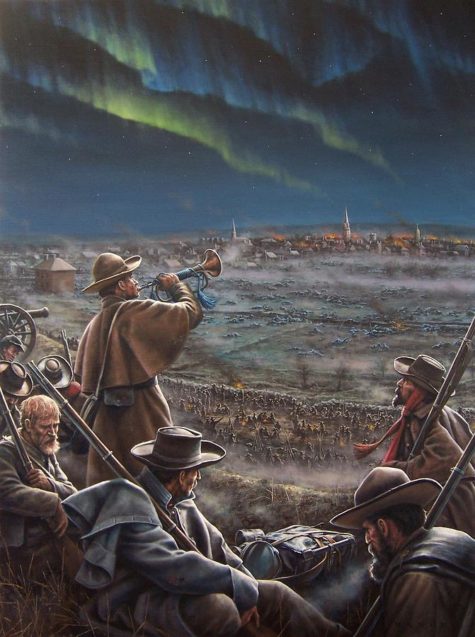
If any of you have ever been to a military funeral in which taps was played; this brings out a new meaning of it.
Here is something Every American should know. Until I read this, I didn’t know, but I checked it out and it’s true:
We in the United States have all heard the haunting song, ‘Taps…’ It’s the song that gives us the lump in our throats and usually tears in our eyes.
But, do you know the story behind the song? If not, I think you will be interested to find out about its humble beginnings.
Reportedly, it all began in 1862 during the Civil War, when Union Army Captain Robert Elli was with his men near Harrison’s Landing in Virginia. The Confederate Army was on the other side of the narrow strip of land.
During the night, Captain Elli heard the moans of a soldier who lay severely wounded on the field. Not knowing if it was a Union or Confederate soldier, the Captain decided to risk his life and bring the stricken man back for medical attention. Crawling on his stomach through the gunfire, the Captain reached the stricken soldier and began pulling him toward his encampment..
When the Captain finally reached his own lines, he discovered it was actually a Confederate soldier, but the soldier was dead.
The Captain lit a lantern and suddenly caught his breath and went numb with shock. In the dim light, he saw the face of the soldier. It was his own son. The boy had been studying music in the South when the war broke out.. Without telling his father, the boy enlisted in the Confederate Army.
The following morning, heartbroken, the father asked permission of his superiors to give his son a full military burial, despite his enemy status. His request was only partially granted.
The Captain had asked if he could have a group of Army band members play a funeral dirge for his son at the funeral. The request was turned down since the soldier was a Confederate. But, out of respect for the father, they did say they could give him only one musician.
The Captain chose a bugler. He asked the bugler to play a series of musical notes he had found on a piece of paper in the pocket of the dead youth’s uniform.
This wish was granted. The haunting melody, we now know as ‘Taps’ used at military funerals was born.
The words are:
Day is done.
Gone the sun.
From the lakes
From the hills.
From the sky.
All is well.
Safely rest.
God is nigh.
Fading light.
Dims the sight.
And a star.
Gems the sky.
Gleaming bright.
From afar.
Drawing nigh.
Falls the night.
Thanks and praise.
For our days.
Neath the sun
Neath the stars.
Neath the sky
As we go.
This we know.
God is nigh
I too have felt the chills while listening to ‘Taps’ but I have never seen all the words to the song until now. I didn’t even know there was more than one verse . I also never knew the story behind the song and I didn’t know if you had either so I thought I’d pass it along.
In Boston, during a verbal dispute, an unarmed teenage boy was forcefully hit in the head with the butt of a weapon by local law enforcement.
Word of the incident spread quickly, and a large number of locals gathered in the street where the incident had happened to protest almost immediately.
As the crowd grew, angry protesters shouted slogans; some business owners, fearing property damage, shut their doors.
The local authorities called for uniformed backup; backup came, well-armed.
The assembly was deemed “unlawful,” and the crowd was ordered to disperse. The protesters began to throw dirt clods in response.
In response, multiple uniformed law enforcers fired on the crowd. The 1st protester to die was a black man and the authorities justified the shooting by claiming that they “feared for their lives”.
If, while reading this story, you found yourself siding with the authorities and thinking that the protesters should’ve dispersed when ordered, or that the protesters armed with dirt & sticks deserved to be met with deadly force by armed law enforcement, I have bad news for you.
You chose the side of the tyrant King George III, not the American patriots.
The year was 1770, the authorities were British soldiers, the protest would later be called the Boston Massacre.
The 1st protester killed in that conflict was Crispus Attucks, a black man considered by many to be a heroic American patriot and the 1st casualty of the American Revolution.
Marinate on that for a minute.






